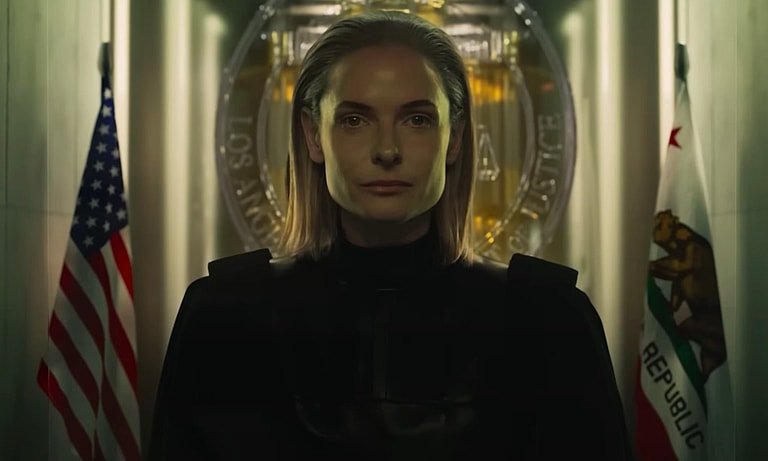28 Years Later
/22 years since Danny Boyle’s horror film 28 Days Later came out. And 17 years since that film’s sequel 28 Weeks Later. But who’s counting? Fans of the franchise might be, and they’re likely excited for the new trilogy of films in this franchise. The trailer for the first new film, 28 Years Later, is striking. The Guardian praises the trailer, saying it makes the film appear “just about the most exciting film of 2025.” Let’s find out why.
So, instead of relying on established conventions for suspense/horror trailer soundtracks, this trailer is accompanied by the audio recording of actor Taylor Holmes’ 1915 reading of Rudyard Kipling’s poem ‘Boots’ (published in 1903 in a collection titled The Five Nations). This indisputably creepy poem is about the psychological toll of being an imperial British soldier marching in Africa.
That’s right, the editors of this trailer chose to use for their soundtrack a scratchy 100+ year old recording of a poem by a racist and imperialist/colonialist British poet. A bold and probably disastrously bad choice in theory. Right? Strangely, it actually works brilliantly here.
At the start, we jump back to the beginning of the first film (28 Days Later): the virus outbreak in the UK. We hear a heavy-footed and old-sounding theme over the opening credits and then see six young blond kids watching Teletubbies, a popular late ‘90s BBC kids tv show. At 0:08, a distressed woman rushes in with another child, shouting a warning. There’s a menacing BRAAM sound in the distance. From 0:12-0:16, a jarring pair of notes grows in volume then vanishes. One note is very low (think of the _Jaws _theme’s use of ominous low notes), and one note is very high (think of the high pitched shrieking tone in the shower scene from Psycho).
From 0:19-0:27 there are references to film that started this series, including the church where Jim (Cillian Murphy) first encounters the infected. But at 0:28 we hear the crackly hiss of an old recording. Titles on screen show the passage of time–days became weeks, weeks became years (in reference to the prior iterations of the “Later” series–and we start to hear stanza #2 from the poem “Boots.” This poem is written with lots of repetition, and Taylor Holmes’ spoken word performance is rhythmic and pronounced. From 0:32-0:51, nine of the words are synched to a camera cut as we see a tough community of survivors on their island outpost.
At 0:50, a new stanza begins and we see a mechanism for shooting powerful metal-tipped arrows. There’s a low, reverberant impact sound. An electronic countdown beep tone is added to punctuate each word, with a new camera shot synched to nearly every word. By 0:56 there is an ominous low droning sound, joined at 1:00 by a high pitched train whistle type of tone. Two characters are leaving the safe haven of the island and cautiously venturing across the causeway and on shore, risking encounters with the infected. At 1:02 and 1:16 the scenes are intercut with director (Danny Boyle) and writer (Alex Garland) credits.
Nice alignment of the words of the poem with the visuals at 1:04: we see silhouettes of people running madly down a hill as we hear, from the poem: “men go mad with watching ‘em.” By 1:15 there is a chord in the background played on orchestral strings and at 1:22 we start to see soldiers with guns, hearkening back to the role of the NATO soldiers in 28 Weeks Later.
At 1:28, at the end of the poem’s third stanza, we have our requisite cut to silence. Soldiers with headlamps are in the dark, and as the poem echoes away, we hear shallow, anxious breathing. There is a jump scare and scream at 1:31, but it’s pretty dark, we don’t really see what is happening.
The next stanza of the poem, from 1:33, is read by Holmes as though crazed, and now each word is accompanied by a crunchy tone evocative of marching army boots or rifles being loaded. On screen we see shots of towers of bones and swarms of the infected running through fields of flowers. In the background we hear a distorted low drone getting louder and louder, and 1:47 brings us the clearest glimpse of the infected. The last phrase of the poem (“There’s no discharge in the war”) is heard at 1:53, as though it were echoing out in a cavern. Finally, as the film’s title card appears with a blood red background on screen, the poem returns to reciting the numbers from the second stanza, where it began.
The recording of this poem “Boots” has been known to be played on repeat during the US Navy’s Survival, Evasion, Resistance and Escape (SERE) training program. Its use in this trailer effectively underscores the psychological trauma and unhinged mental state on display in the world depicted in these films. It’s effective, it’s different, it’s dramatic.
We predict that this 28 Years Later may have just set new trends in trailer sound.
— Jack Hui Litster







